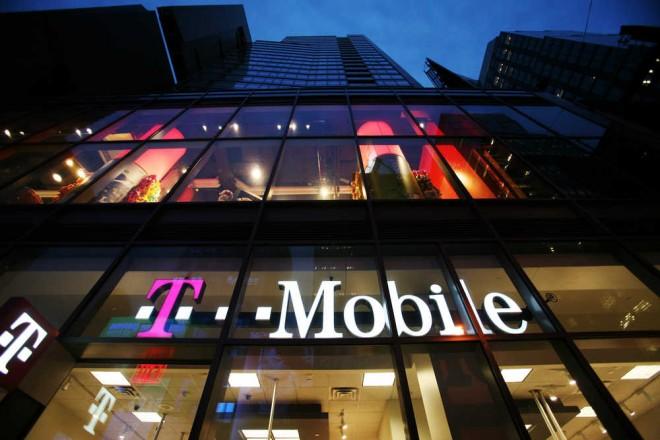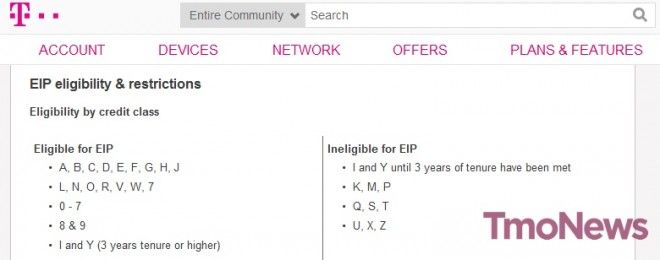T-Mobile making minor adjustments to its credit requirements for EIP
If you’ve listened in on any of T-Mobile’s earnings calls this year, a recurring theme is the quality of customers the carrier is attracting. At least it is during the Q&A section. For Wall Street to be confident in TMUS stock, it needs to be confident that the millions of customers signing up to join #TeamMagenta are generating income for the company. But it’s not just about Wall Street. T-Mobile doesn’t want to be signing up a load of customers that could potentially lead to a loss. Especially lower credit customers who don’t pay their EIP installments, or monthly plan charges.
We’ve been in touch with a couple of our sources, and they’re all singing from the same hymn sheet: T-Mobile is moving the goalposts. Customers in credit classes I and Y will no longer be able to sign up to pay for their devices via EIP, unless they’ve been with the company for 3 years. This applies to existing customers too. So, if you’re in one of those two credit classes, and you’ve only been a T-Mobile customer for a year or two and you have an EIP, you won’t be able to sign up for another one until your three years have passed.
In the past, these credit classes would have been labelled “lesser-qualified” customers and still been allowed to sign up for an installment plan, providing they coughed up some cash up front for the device. Deposit amounts varied depending on device. But now, they can’t sign up for an EIP at all. In fact, we got an email from a T-Mo customer saying that they were turned down for a new Equipment Installment Plan for those reasons.
 Like a lot of “lesser qualified” customers, subscribers in classes I and Y will suddenly become “well qualified” as soon as they’ve been with T-Mo for three years. From that point, they’re pretty much free to any EIP. And the difference between being “well-qualified” and “lesser-qualified” is simple. The higher credit class subscribers typically are able to pay less up front ($0 down most of the time) and have higher monthly repayments. Lower credit classes are the opposite: Higher down payment, and lower monthly rate. It’s just a way to ensure T-Mobile gets the money back that it’s essentially loaning to customers at a 0% rate so that they can buy devices.
Like a lot of “lesser qualified” customers, subscribers in classes I and Y will suddenly become “well qualified” as soon as they’ve been with T-Mo for three years. From that point, they’re pretty much free to any EIP. And the difference between being “well-qualified” and “lesser-qualified” is simple. The higher credit class subscribers typically are able to pay less up front ($0 down most of the time) and have higher monthly repayments. Lower credit classes are the opposite: Higher down payment, and lower monthly rate. It’s just a way to ensure T-Mobile gets the money back that it’s essentially loaning to customers at a 0% rate so that they can buy devices.
Now, it’s unlikely that a hugely significant amount of customers will be affected by this. After all, if too many were unable to sign up for an EIP, T-Mo wouldn’t be able to continue its impressive growth. It’s essentially a tactic to ensure that fewer of the really “low quality” customers sign up, and looking after the cashflow. The number of people assigned “I” or “Y” is low.
With this slight shift on T-Mobile’s behalf, and recent claims from T-Mobile executives that it’s only attracting high quality customers from Verizon and AT&T, it should certainly keep investors and analysts cheerful. It’s also a small change to ensure a return to profitability comes sooner rather than later.


